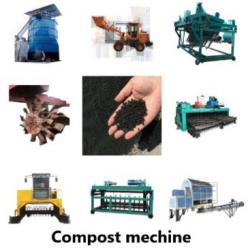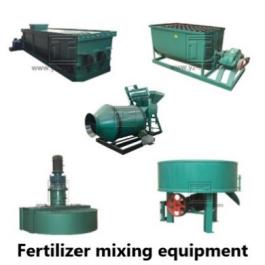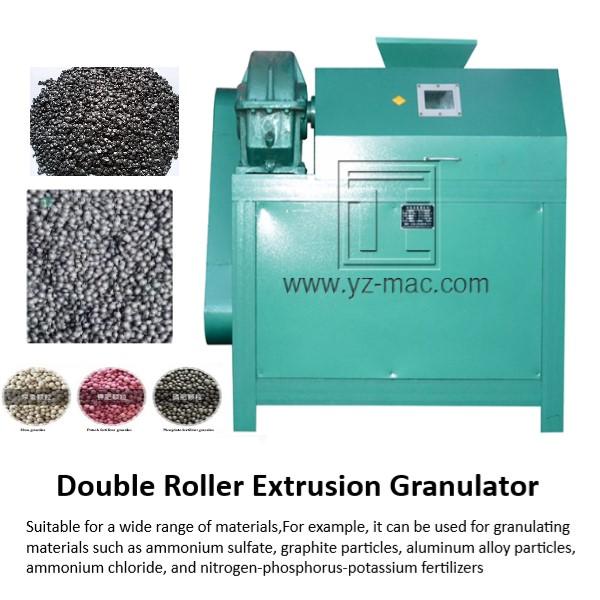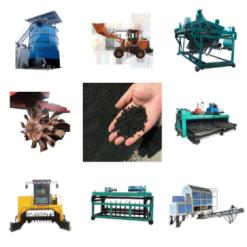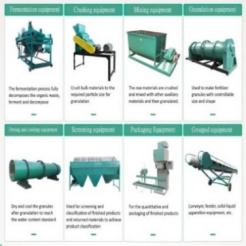Large scale compost
Large-scale composting is a sustainable waste management solution that enables the efficient processing of organic waste on a grand scale. By diverting organic materials from landfills and harnessing their natural decomposition process, large-scale composting facilities play a vital role in reducing waste, mitigating greenhouse gas emissions, and producing nutrient-rich compost.
Composting Process:
Large-scale composting involves a carefully managed process that optimizes decomposition and compost production. The key stages include:
Waste Collection: Organic waste materials, such as food scraps, yard trimmings, agricultural residues, and biosolids, are collected from residential, commercial, and industrial sources.
Preprocessing: The collected waste undergoes preprocessing, including sorting, grinding, or shredding, to achieve uniformity and optimal particle size for efficient decomposition.
Active Composting: The preprocessed waste is then placed in large composting piles or windrows. These piles are carefully managed, with regular turning to provide aeration, maintain moisture levels, and facilitate the growth of beneficial microorganisms.
Maturation and Curing: After an initial composting phase, the material is allowed to mature and cure. This process ensures the breakdown of complex organic compounds, resulting in a stable and mature compost product.
Benefits of Large-Scale Composting:
Large-scale composting offers numerous benefits, including:
Waste Diversion: By diverting organic waste from landfills, large-scale composting reduces the volume of waste deposited in landfills, thereby extending their lifespan and reducing environmental pollution.
Reduced Greenhouse Gas Emissions: The composting process significantly reduces the production of methane, a potent greenhouse gas, compared to anaerobic decomposition in landfills. This helps mitigate climate change and contributes to carbon sequestration.
Nutrient Recycling: Compost produced from large-scale composting facilities is rich in organic matter and nutrients. It can be used as a natural fertilizer, enriching soil quality, promoting plant growth, and reducing reliance on synthetic fertilizers.
Soil Health Improvement: The application of compost improves soil structure, enhances moisture retention, increases nutrient availability, and encourages beneficial microbial activity, leading to healthier and more productive soils.
Cost Savings: Large-scale composting can be cost-effective, especially when combined with waste reduction strategies. It reduces waste management costs, landfill fees, and the need for expensive synthetic fertilizers.
Applications of Large-Scale Composting:
Large-scale composting finds applications in various sectors, including:
Agriculture and Horticulture: The high-quality compost produced from large-scale composting facilities is used as an organic soil amendment in agricultural and horticultural practices. It enhances soil fertility, improves crop yields, and promotes sustainable farming practices.
Landscaping and Green Infrastructure: Compost is utilized in landscaping projects, park restoration, urban greening, and green infrastructure development. It improves soil health, aids in erosion control, and contributes to the establishment of healthy and resilient green spaces.
Restoration and Remediation: Compost plays a crucial role in land restoration and remediation projects. It is used to rehabilitate degraded soils, brownfields, and mine sites, assisting in the establishment of vegetation and the regeneration of natural habitats.
Soil Erosion Control: Compost is applied to eroded areas, construction sites, and slopes prone to erosion. It helps stabilize the soil, reduce runoff, and prevent soil erosion, protecting water quality and supporting sustainable land management practices.
Large-scale composting is a sustainable waste management approach that harnesses the natural process of organic decomposition to produce nutrient-rich compost. By diverting organic waste from landfills, reducing greenhouse gas emissions, and providing valuable compost for various applications, large-scale composting facilities contribute to a circular economy and sustainable resource management.



